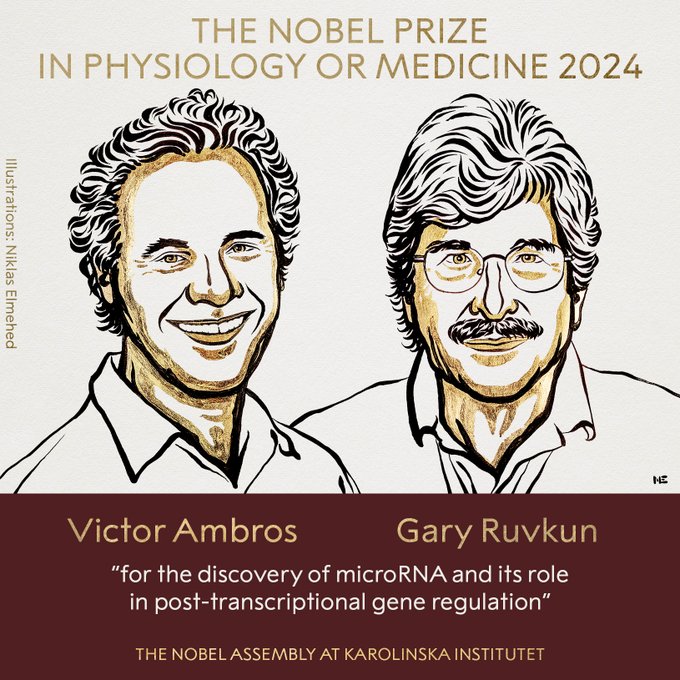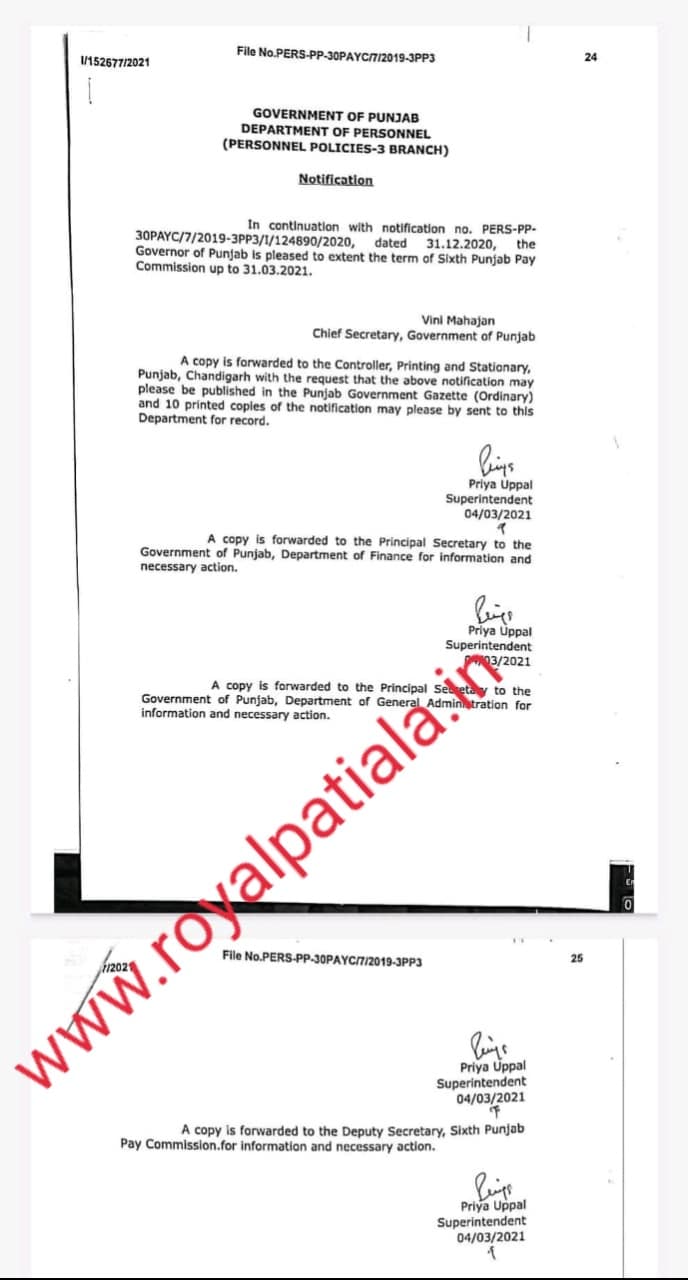2024’s first category Nobel Prize in Physiology or Medicine announced
Kanwar Inder Singh/ royalpatiala.in News/ October 7,2024
This year’s #NobelPrize in Physiology or Medicine honours two scientists for their discovery of a fundamental principle governing how gene activity is regulated. They discovered microRNA, a new class of tiny RNA molecules that play a crucial role in gene regulation.
The Nobel Assembly at the Karolinska Institutet has decided to award the 2024 Nobel Prize in Physiology or Medicine jointly to Victor Ambros and Gary Ruvkun “for the discovery of microRNA and its role in post-transcriptional gene regulation.”
US scientist 2024 medicine laureates Victor Ambros and Gary Ruvkun’s groundbreaking discovery revealed a completely new principle of gene regulation that turned out to be essential for multicellular organisms, including humans.
“Their surprising discovery revealed an entirely new dimension to gene regulation. MicroRNAs are proving to be fundamentally important for how organisms develop and function.”
Their work helped explain how cells specialise and develop into different types, such as muscle and nerve cells, even though all the cells in an individual contain the same set of genes and instructions for growing and staying alive.
“This year’s Nobel Prize focuses on the discovery of a vital regulatory mechanism used in cells to control gene activity. Genetic information flows from DNA to messenger RNA (mRNA), via a process called transcription, and then on to the cellular machinery for protein production. There, mRNAs are translated so that proteins are made according to the genetic instructions stored in DNA. Since the mid-20th century, several of the most fundamental scientific discoveries have explained how these processes work.,” the citation read further
The Nobel Academy went on to explain how Ambros and Ruvkun worked together since their days as postdoctoral fellows in the laboratory of Robert Horvitz, who was awarded the Nobel Prize in 2002, alongside Sydney Brenner and John Sulston.

“In the late 1980s, Victor Ambros and Gary Ruvkun were In Horvitz’s laboratory, where they studied a relatively unassuming 1 mm long roundworm, C. elegans. Despite its small size, C. elegans possesses many specialized cell types such as nerve and muscle cells also found in larger, more complex animals, making it a useful model for investigating how tissues 3 develop and mature in multicellular organisms. Ambros and Ruvkun were interested in genes that control the timing of activation of different genetic programs, ensuring that various cell types develop at the right time.”
It is now known that the human genome codes for over one thousand microRNAs. MicroRNAs are proving to be fundamentally important for how organisms develop and function.
2024’s first category Nobel Prize in Physiology or Medicine announced.This year’s medicine laureates Victor Ambros and Gary Ruvkun studied a relatively unassuming 1 mm long roundworm, C. elegans.
Despite its small size, C. elegans possesses many specialised cell types such as nerve and muscle cells also found in larger, more complex animals, making it a useful model for investigating how tissues develop and mature in multicellular organisms.













